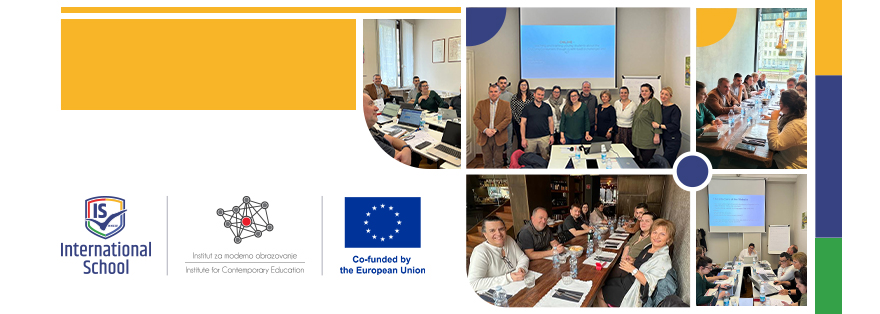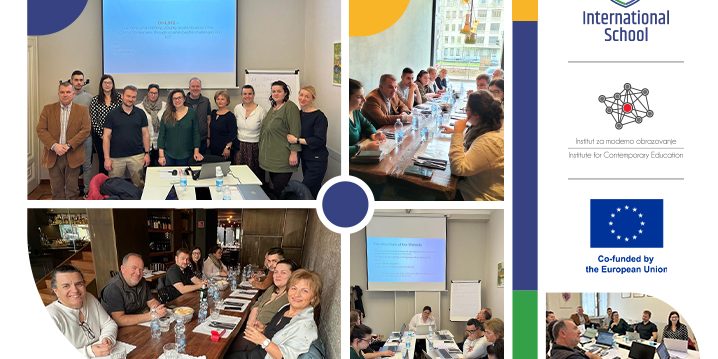The project “ONLINE DigCompConsumers” aims to provide teachers with the tools and knowledge to educate students about Internet safety, as well as to develop digital competencies in students so that they can function in modern society.
Members of the Institute for Contemporary Education and International School teachers Tamara Lazić Kapollas and Nikola Ristic, together with educational experts from other countries, participated in the kickoff meeting in Milan, Italy, on March 31 of this year as part of the project “ONLINE DigCompConsumers”. This project brought together educational experts from Portugal, Cyprus, Romania, Bulgaria, Italy and Serbia who are dedicated to research and improvement of teachers’ IT competencies and determined to create more efficient and quality education for students aged 11 to 14.

The project “ONLINE DigCompConsumers” aims to improve the digital competencies of students aged 11 to 14 and develop their critical thinking and attitude towards the digital world. Through gamification and innovative active pedagogy, the project wants to define a set of competencies and develop innovative material for teacher training, which will turn students into active consumers who can function safely and assertively in the digital market.
The expected results of the project include a training plan for teachers and gamified educational material for teachers of higher grades of elementary schools for the implementation of laboratories within the lesson on children’s consumer education. It also includes a digital application repository with training and audio-visual material on the education of young consumers in elementary schools.
The project will be implemented over a two-year period and will include educational experts from Portugal, Cyprus, Romania, Bulgaria, Italy and Serbia who will combine their expertise, competencies and love for their profession in order to achieve fruitful results in the improvement of teachers’ IT competencies and the education of young consumers.
As the digital sphere has become ubiquitous in today’s society, digital security education has become crucial to the development of students’ critical thinking.




